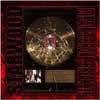The vibrant glam/trash metal Sunset Strip of the ‘80s was a scene to behold. The stench of decadence and decay was never more evident, with every longhair and his brother clamoring to be the next Motley Crue, by any means necessary. In fact, the Crue themselves had their own rags-to-riches stories that have reached mythological proportions.
The tales touch on living in squalor that included soiled newspaper strewn across the bathroom floor. Newspaper because good ‘ole bathroom tissue was just too expensive, plus it didn’t get you drunk. Then, of course, there’s the well-known bet between Crue’s Tommy Lee and Nikki Sixx to see who could go the longest without showering, while still enjoying the more libidinous benefits of being in a Hollywood metal band.
Yes, the dirt literally dripped from the long-famous (and infamous) Hollywood scene, and believe it or not, it quickly became a highly marketable commodity. And while there are those who would just as soon keep it locked in a box, newcomers Starwood are bringing the stench back to L.A.
In the great tradition of Faster Pussycat and L.A. Guns, Starwood brings a down-and-dirty brand of ‘80s glam that’s true to its roots yet incredibly viable in a today’s industry where the nostalgia of Velvet Revolver and the kitsch of The Darkness are bringing in the dollars.
Starwood’s debut album If It Ain’t Broke, Break It! is a nod to the band’s collective love for KISS and the freaky appeal of the ‘80s glam metal scene in Los Angeles. From one song to the next, vocalist Lizzy races through his vocal lines, wavering between Steven Tyler’s raspy vox and the fine-tuned vibrato of Queensryche’s Geoff Tate, while drummer Joey Scott, bassist Marten Andersson and guitarist Joe Steals try to keep up.
As one would expect from an album of this ilk, If It Ain’t Broke … hits like a 250-pound linebacker hunting a quarterback. Perhaps what’s most notable about Starwood’s sound is it reminds you of everything you once loved about ‘80s metal without engaging the gag reflex that the scene’s excess and camp elicited.
Even more impressive is the fact that Starwood stuck with a nine-track offering, despite the obvious pitfall of not meeting the music consumer’s current expectation of at least 15 tracks. Given the crap that ends up on today’s recorded sagas, many bands would do well to follow Starwood’s lead and spare us the superfluous rants. Get in, get out, rock HARD!

